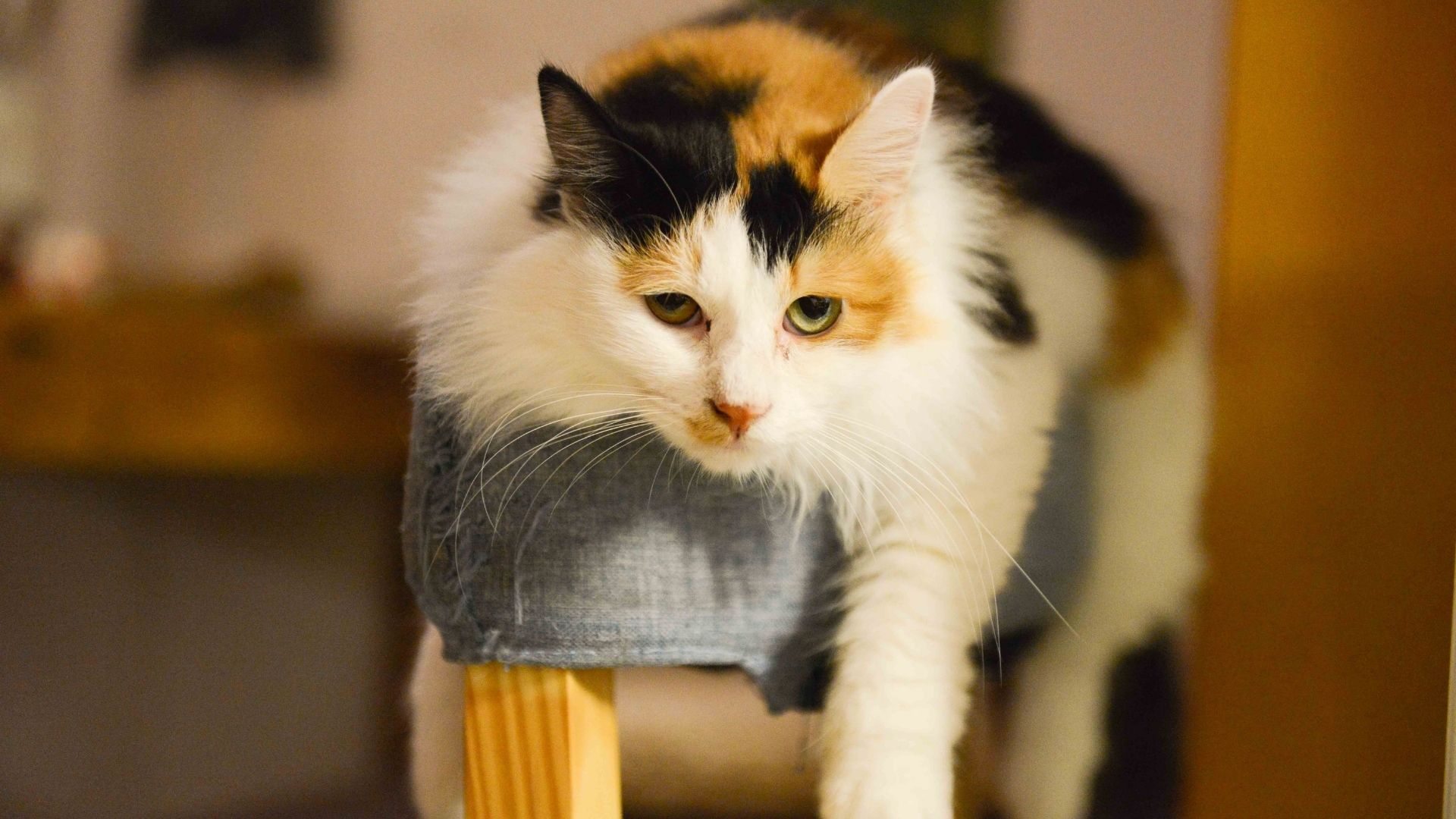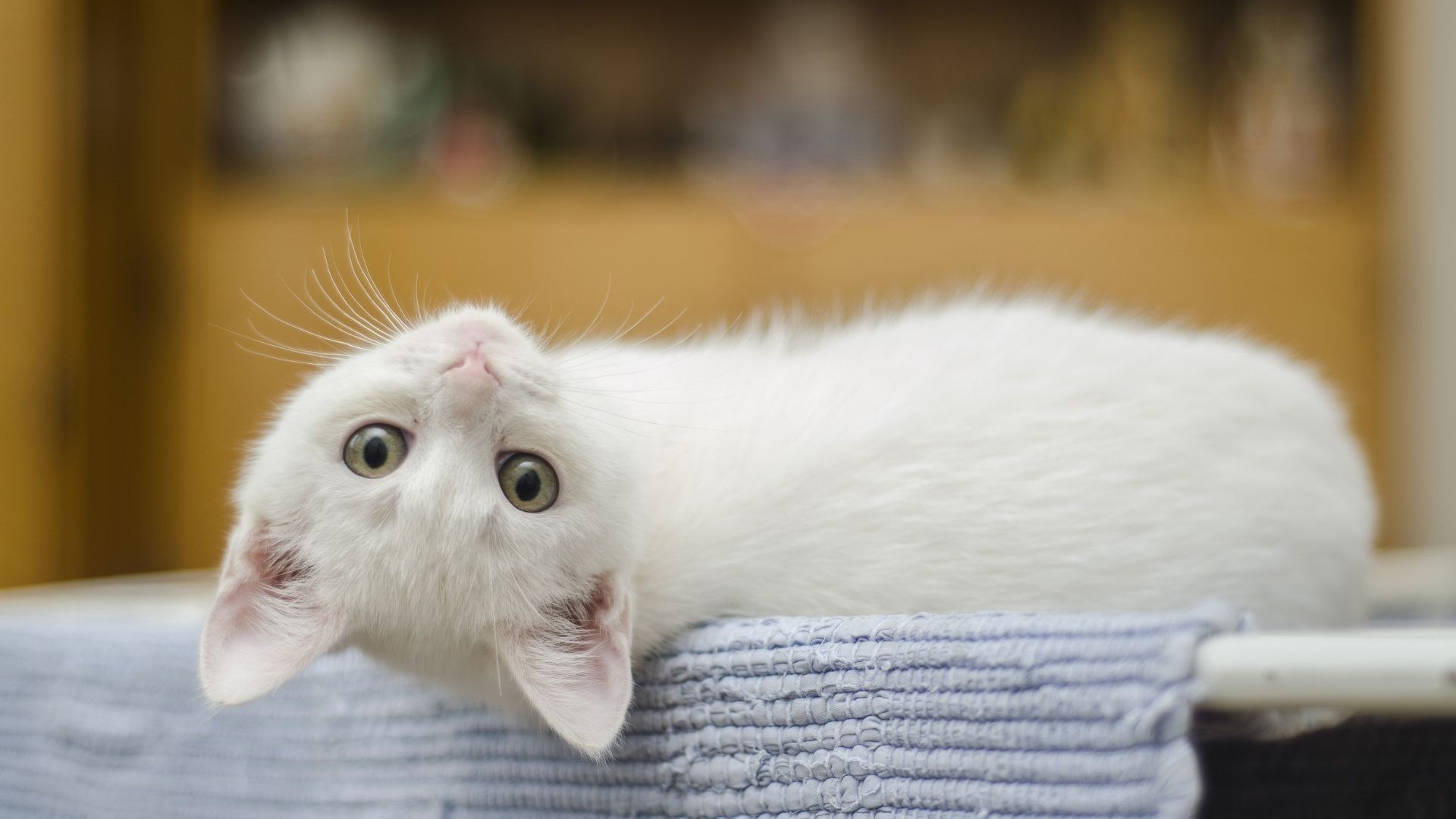Cats can be very sensitive animals who do not deal well with change.
They may become anxious or frustrated by changes going on around them, or by the way people interact with them.
Cats are independent animals. With territory and security being very important to them.
We can be more responsible pet parents when we understand why our cats get stressed, and the symptoms and reliefs of these.
Why do cats get stressed?
Lack of key resources:
One great source of stress for cats is when they feel that they must compete for important resources such as food, water, clean litter box space, scratching posts, or human attention.
Cats usually see other cats not as allies but as competitors.
This can cause tensions that can be quite subtle and unnoticeable.

Inadequate territory:
Cats usually need a scratching post to mark so they feel like they are masters of a piece of territory.
When they don’t have such one, or they are bullied out of their spaces, these can cause cats stress.
Changes in the household:
Cats want to feel safe and secure by being familiar with an environment.
Changes such as rehoming, moving home or the arrival of other pets in the home can lead to anxiety and frustration.
Loud noises and home disturbances:
Cats do not like loud noises.
Home DIY projects, disturbances, or party nights that are loud and chaotic can cause them stress.
Boredom:
With their predatory nature, cats can get bored if they don’t have an outlet for their energy.
They can also get bored if they are not given much attention or cuddle time.
Shop Popular Cat Toys
Changes in your daily routine:
Since cats are sensitive to change, unpredictability in your routines with them may also make them feel worried.
Some examples maybe when you start getting up late in the morning or you go home late and spend less time with your cat.
Too much handling:
Some cats may find being stroked for long periods a pleasure. But some may find it uncomfortable and stressful.
While some are quick to tell you by meowing or pawing at you, others may simply tolerate it and become stressed from too much or inappropriate handling.

Symptoms of a Stressed Cat.
Stress in cats is seen in physical and behavioral symptoms.
These are the common signs to watch out for:
- Diarrhea, constipation, or other digestive issuesGoing to the toilet outside the litter box
- Excessive grooming may result in bald spots
- Constant scratching
- Isolation or extra clinginess
- Decrease in appetite
- Sleeping more than usual
- Noticeable changes in patterns of behavior and routines
- Aggression towards other animals and people
- Painful urination with blood
Shop Popular Cat Products
Help Keep your Cat Calm When Stressed
As responsible pet parents, it is important to be aware of when they are stressed and what we can do to help.
- Keep enough litter boxes regularly clean for each of your cats with an excess of one or two to avoid competition with resources
- Provide food and water bowls in easily accessible locations. Make sure that their food supply is sufficient to avoid defending their share from other pets or cats
- Set up plenty of sturdy scratching posts in different shapes, sizes, and forms which may include vertical and horizontal variations
- Create “safe rooms” for your cats where they can go when there is too much noise and disturbance in the home. Fill it with treats and toys to make them happy and calm
- Provide plenty of interactive play toys and cuddle time to eliminate boredom for your cats. Use calming tools such as diffusers and sprays to make them feel calm
- Seek professional advice from pet experts
Popular Cat Calming Products
Cats are part of our family.
They must be treated with utmost care so they do not feel anxious and frustrated.
By being aware of these causes, symptoms, and treatments, we can go a long way to help stressed cats.
If you have more questions, reach out to our nearest petworld store or call us now

